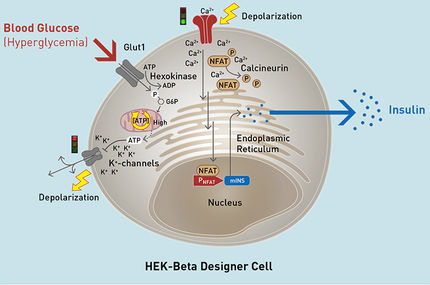World's First Announcement Of Cloned 'Knock-Out' Pigs
Advertisement
PPL Therapeutics Plc, is pleased to announce it has produced 'knock-out' piglets which were born as a result of using nuclear transfer (cloning) and PPL's patented gene targeting technology. The five healthy births took place on Christmas Day, 25 December 2001. It has always been the objective of PPL's xenotransplantation programme to produce 'knock-out' pigs. In future, this vital step should enable organs and/or cells from such animals to be transplanted into humans and not be rejected by the human recipient. A 'knock-out' pig has the specific gene that leads to the human immune system rejecting pig organs inactivated.
The announcement today achieves a key milestone that PPL has pursued in the area of xenotransplantation. In view of the fact that PPL's financial resources are being focused primarily upon bringing its lead product recAAT, for the indication hereditary emphysema, to the market as quickly as possible, PPL proposes to find a 'spin out' partner to take the 'xeno' and stem cell areas forward. This development demonstrates PPL?s leading position in this area and it will be of significant interest to all companies involved in transplant technology.
Pigs are the preferred species for xenotransplantation on scientific and ethical grounds. It is anticipated the first application of this technology will be the testing of insulin-producing islet cells for the treatment of diabetes from the 'knock-out' pigs, first in primates, and soon thereafter in humans. Clinical trials could start in as little as four years and analysts believe the market could be worth over $5 billion for solid organs alone, and $6 billion for cellular therapies for Diabetes, Parkinson's and Alzheimer's Diseases.
The gene that has been 'knocked-out', the alpha 1,3 galactosyl transferase (GT) gene is responsible for making an enzyme that adds a sugar to the surface of pig cells which is recognised by the human immune system as foreign, and which therefore triggers an immune response leading to hyperacute rejection by the human patient, of the transplanted organ or cell, within minutes. The ability to delete or 'knock-out' this gene, therefore, provides a vital step in producing pigs with organs and cells useful in humans.
Other news from the department science

Get the life science industry in your inbox
By submitting this form you agree that LUMITOS AG will send you the newsletter(s) selected above by email. Your data will not be passed on to third parties. Your data will be stored and processed in accordance with our data protection regulations. LUMITOS may contact you by email for the purpose of advertising or market and opinion surveys. You can revoke your consent at any time without giving reasons to LUMITOS AG, Ernst-Augustin-Str. 2, 12489 Berlin, Germany or by e-mail at revoke@lumitos.com with effect for the future. In addition, each email contains a link to unsubscribe from the corresponding newsletter.

























































